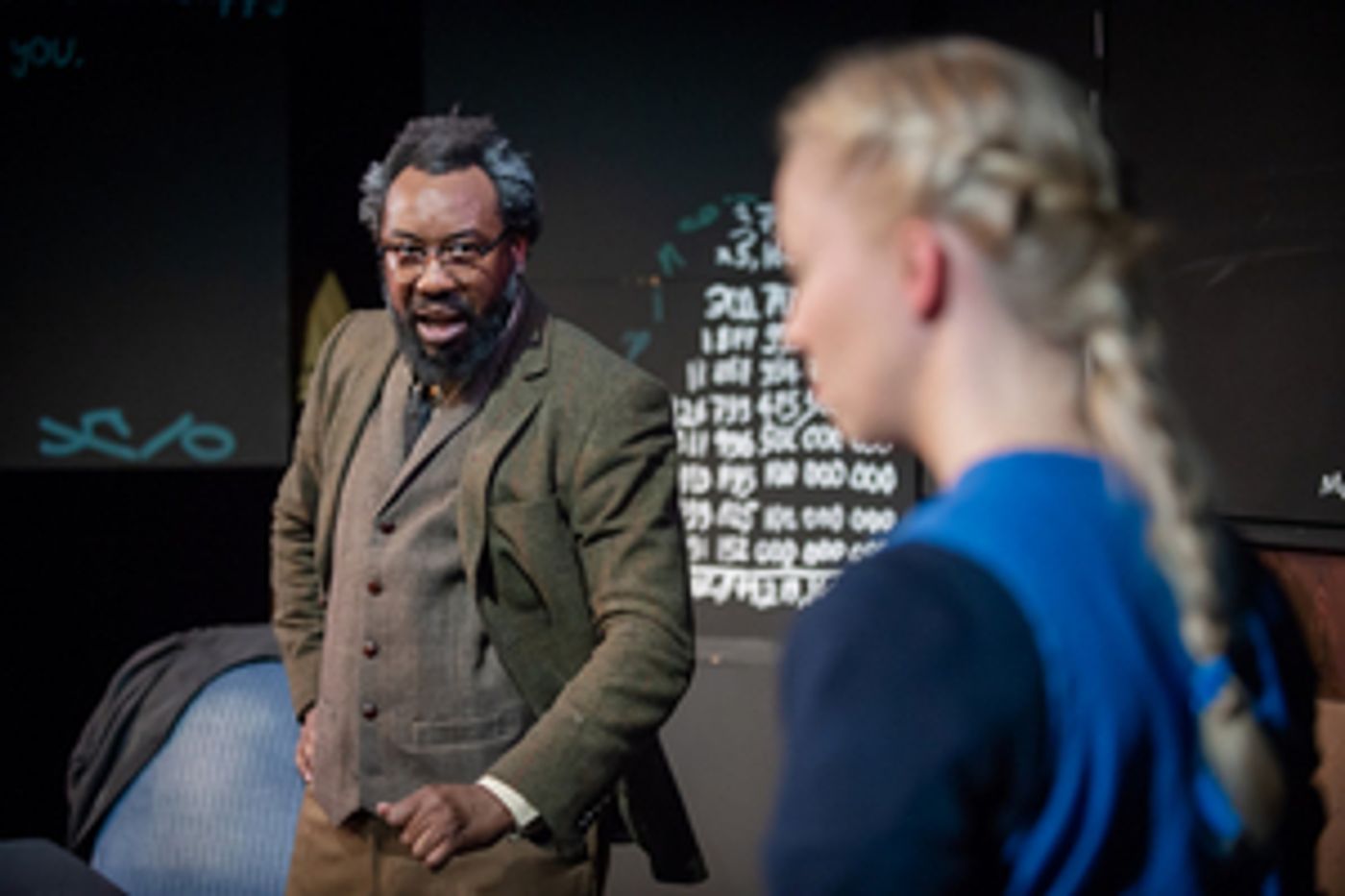Review: THE LESSON, Southwark Playhouse
Max Lewendel's production leaves sense at the door

![]() A young woman appears at the home of a professor to be tutored for some exams. The premise of The Lesson is simple enough, but as this play comes from the pen of Eugène Ionesco, the master of French absurdist theatre, nothing is ever that simple. Max Lewendel's returning production is clever, absurd and ultimately chilling.
A young woman appears at the home of a professor to be tutored for some exams. The premise of The Lesson is simple enough, but as this play comes from the pen of Eugène Ionesco, the master of French absurdist theatre, nothing is ever that simple. Max Lewendel's returning production is clever, absurd and ultimately chilling.
When it was first performed in 1951, The Lesson was Ionesco's first exploration of a new experimentation in form and characterisation that he also used in later plays such as Rhinoceros and Exit the King. What do words mean? How does language and communication actually work; The Professor has a theory that words are the same in many languages, but have different meanings. The Pupil can add 1 + 1, but not subtract.
Little makes much sense, but we are guided through by some good performances from the cast. Jerome Ngonadi is compelling as The Professor, morphing from charming to something more sinister as he systematically deflates his student. He is increasingly frustrated that she can only seem to memorise, not 'think'; convincingly tipping into aggression and violence.
Hazel Caulfield is very good as the vulnerable and initially over-eager student. As The Professor dominates and oppresses her, she physically shrinks and disintegrates. Her timidity and fear at The Professor's increasingly threatening presence is palpable.
The cast is completed by Julie Stark as the maid whose relationship with the professor is, essentially, to tidy up after him; to reason with and challenge him.
The audience must suspend logic and reason, as Ionesco creates a world where numbers and words become stripped of their sense. However, his messages about fascism, power and politics have not dated: we all remember very good and very bad teachers equally. Enthusiastic and lively children who do not fit into the confines of the education system can be easily hounded and cowed.
The professor increasingly challenges his pupil, but also descends into intimidation and interrogation. As an older male, in a position of power, who bullies and threatens his young female pupil, the modern parallels are clear to see. It's a sobering message, but it is a shame that the momentum in the script lags in the middle of the play and the dark comedy in the script is not exploited more.
The design of the production is incredibly engaging, cleverly using new Creative Captioning technology that makes every performance accessible for deaf and hard of hearing audiences. Christopher Hone's set has each piece of furniture morph into a chalk board where the script is both projected and written upon. This creates a real sense of momentum and interest in the play.
As a piece of absurdist theatre The Lesson will not appeal to everyone, but Lewendel's production is both intriguing and smartly executed.
The Lesson is at the Southwark Playhouse until 23 July
Photo Credit: Ikin Yum
Reader Reviews
Videos

